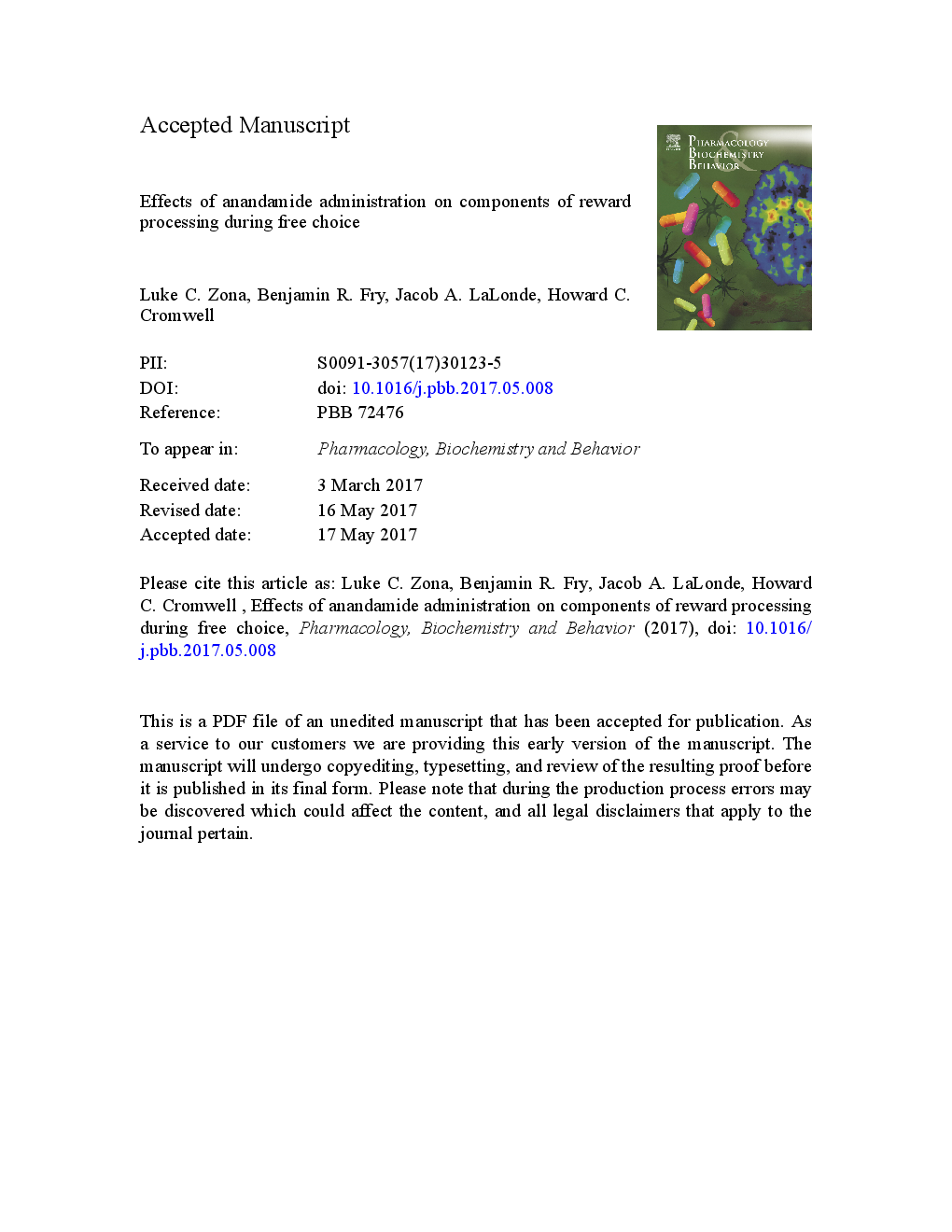ترجمه فارسی عنوان مقاله
اثرات استفاده از آنانداماید بر اجزای پردازش پاداش در انتخاب آزاد
عنوان انگلیسی
Effects of anandamide administration on components of reward processing during free choice
| کد مقاله | سال انتشار | تعداد صفحات مقاله انگلیسی |
|---|---|---|
| 121519 | 2017 | 35 صفحه PDF |
منبع

Publisher : Elsevier - Science Direct (الزویر - ساینس دایرکت)
Journal : Pharmacology Biochemistry and Behavior, Volume 158, July 2017, Pages 14-21
ترجمه کلمات کلیدی
اناندامید، اندو کانابینوئید، انگیزه، تصمیم سازی، کنتراست انگیزشی،
کلمات کلیدی انگلیسی
Anandamide; Endocannabinoids; Motivation; Decision-making; Incentive contrast;

